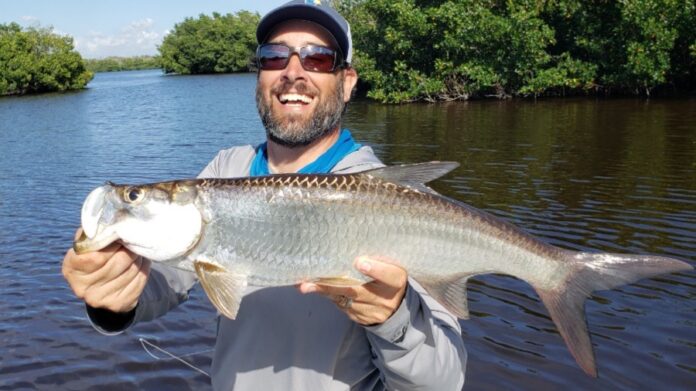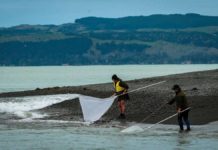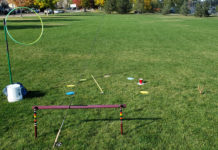All photos by Evan Jones
The Stream to Salt series is designed to help anglers of all abilities identify and overcome specific challenges arising from subconsciously applying “trout brain” to saltwater fly fishing. The goal is not simply to provide a list of new habits to memorize, but also to foster a deeper understanding of why some of the habits and assumptions developed while trout fishing can be detrimental in the salt, and how to adjust.
We’ve already discussed both the importance of covering water and how to cover water in previous installments, but because trout anglers tend to be accustomed to relatively consistent fishing action, it’s important to explore how the pace of saltwater fishing differs as well, in order to help to set appropriate expectations, which lead to better strategic choices. Whether you’re chasing bonefish on a crystal-clear flat, or redfish through a murky swamp, here are three tips to help you maintain a better pace throughout the day:
1. Don’t get discouraged if there’s no action right away
While covering water is a good strategy, it’s also possible to overdo it. Make sure to give yourself at least 10 to 15 minutes in each location to quiet down, settle in, and really observe all that’s happening before you decide to move on. I can’t count the number of times I’ve seen a skiff race into the area I’m fishing, glance around, make a couple of casts and then take off again, all within 5 minutes, and all without even noticing the group of fish right in front of them.

2. Don’t get distracted during lulls in the action
After an hour or two of standing up on the bow (or down in the mud) and not seeing any fish, your mind will start to wander. The clouds and the birds and the trees all suddenly seem more interesting, and you’re increasingly aware of the kink in your back. On many occasions, I’ve had an angler on the bow who was staring up at birds, or stretching, or reaching down for a beer, and ended up missing a shot at the biggest or best fish of the day during that brief moment. If you find yourself losing focus, remember there’s no shame in taking a strategic break to keep your mind sharp. It beats getting sloppy and risking missed shots.

3. Don’t get overly-attached to any one plan
If you’re being patient, and covering water, and staying focused, and still not finding any fish, there comes a point where further persistence isn’t likely to pay off. But rather than grinding out the rest of a fruitless day, or giving up altogether, you’re better off taking advantage of the diversity of saltwater species and choosing an entirely different target. When the tarpon aren’t showing up, go look for tripletail; when the bonefish aren’t cooperating, start eyeing barracuda; and when the redfish aren’t tailing, speckled trout might be lurking nearby. If you’re willing to be flexible, there’s always another option.
Check out the rest of the series:
Stream to Salt I: Don’t Wait to Rig
Stream to Salt II: Keep Moving
Stream to Salt III: How to Cover Water
Stream to Salt IV: Fly Design
Stream to Salt V: Timing the Strip Set
Stream to Salt VI: Understanding Tides
Stream to Salt VII: Avoiding Unproductive Options
Stream to Salt VIII: What to Do When the Fish Aren’t Here . . . Yet.
Evan Jones is the assistant editor of the Orvis Fly Fishing blog. He spent a decade living on the Florida coast and now lives in Colorado.
Credit: Source link































